2017
Thursday 2 November
RMIT’s Storey Hall, Melbourne, Australia
35 finalists from 18 institutions
15 winners representing 8 institutions
Built Environment
W I N N E R
Nurturing the Future – Inveresk Student Apartments
The University of Tasmania’s Inveresk Apartments project is an innovative, environmentally, economically and socially sustainable student accommodation facility. An integrated Environmentally Sustainable Design (ESD) approach was central to the design and the project brings a holistic view to its sustainability credentials. This holistic approach included a location that provides the optimum in residential amenity, a design that is sympathetic to the surrounding heritage precinct, a construction methodology that minimised site impacts and maximised sustainable approaches and a completed project that evidences its sustainability merits with a high Green Star rating. The project is sustainable in every sense.
A Green Gown Award Australasia has recognised the University of Tasmania’s commitment to integration of our teaching and research programs and our organisational philosophy regarding student experience and sustainability outcomes. It strongly support the University’s lead role in encouraging the uptake of environmentally sustainable practices and their positive impact on the environment and community health and well-being.
Top 3 learnings
Sustainable Development Goal 8
Sustainable Development Goal 9
Sustainable Development Goal 11
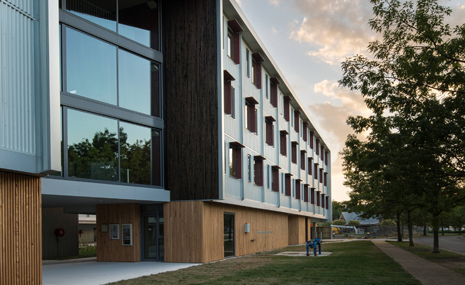
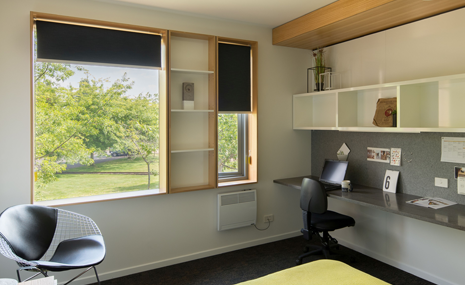
Community
W I N N E R
Education for Sustainability Tasmania: a UN-recognised Regional Centre of Expertise – a new kid on the block
Recognition of EfS Tasmania: a United Nations-recognised Regional Centre of Expertise in 2015 resulted from University of Tasmania leadership within our community to recognise sustainability leaders and establish a state-wide network of Tasmanian sustainability partners delivering initiatives across education and research, community, business and government. The ongoing activities associated with EfS Tasmania helps deliver on the University commitment as a Talloires Declaration signatory to incorporate sustainability literacy into teaching and learning as well as our broad-based community engagement and partnership activities in sustainability. Details of our activities can be found at http://efs.tas.edu.au
Top 3 learnings
Sustainable Development Goal 4
Sustainable Development Goal 11
Sustainable Development Goal 17
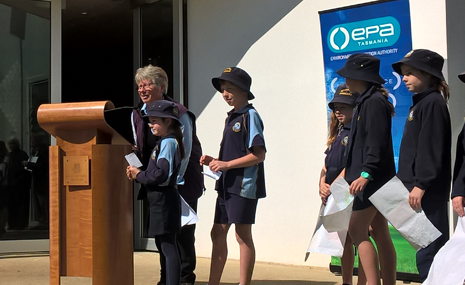
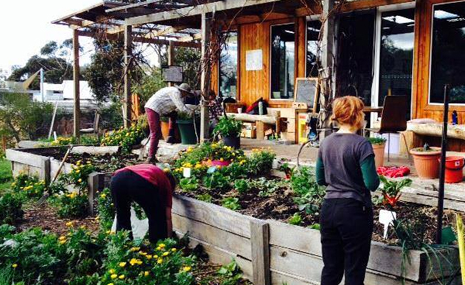
H I G H L Y C O M M E N D E D
Living Landscapes – Where Science and Art Meet
Through Living Landscapes, La Trobe University created a unique opportunity to connect the community to nature, and the science behind creating a world class Wildlife Sanctuary. The Living landscapes virtual-reality installation allows users the opportunity to design and plant their own plant in a virtual Sanctuary landscape. For every plant drawn an indigenous plant was planted at the La Trobe Wildlife Sanctuary. The La Trobe Wildlife Sanctuary utilises the equipment in their Education experiences, engaging primary, secondary and tertiary students in a new approach to learning about the importance of habitat for the conservation of indigenous plants and animals.
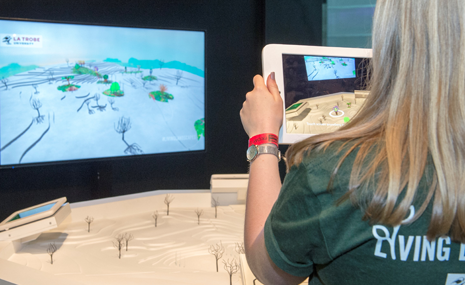
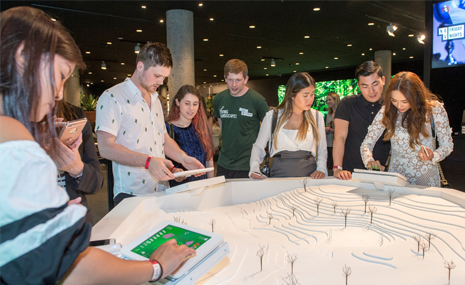
H I G H L Y C O M M E N D E D
Carbon Neutral Adelaide – A partnership for our future
Carbon Neutral Adelaide is an initiative of the State Government and Adelaide City Council to make Adelaide the world’s first carbon neutral city. The University of Adelaide became the first founding partner in 2016, and remains the largest institution to support the initiative. The partnership is a commitment to work together to create a sustainable future for South Australia, where innovation is encouraged and low-carbon solutions are showcased. Through teaching, research and operations, the University is working to make this vision a reality with resources and support for entrepreneurs, collaborative working groups and $14.4M of investment in campus sustainability improvements.
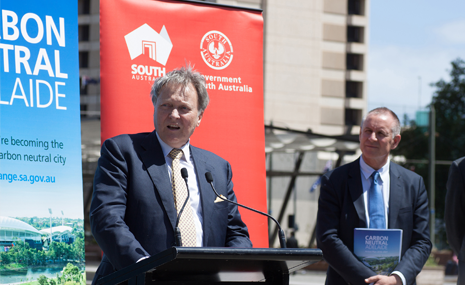
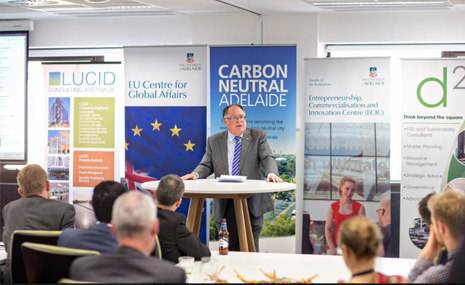
Continuous Improvement – Institutional Change
W I N N E R
Embedding sustainability at USQ
Since 2009, USQ has adopted a holistic, enterprise-wide approach to sustainability. From integrating sustainability into strategic planning (goals and KPIs), policy and procedures (PDs and Procurement), to significant renewable energy, waste and water solutions. Outcomes include: 32% reduction in waste; 25% increase in recycling & resource recovery; 4000+ signatories Sustainability Pledge; 2016 awarded 6 Star Green Star Rating – Springfield Building B; initiated 2MW Sustainable Energy Solution (stage 1 Australia’s largest integrated solar carpark) reducing CO2-e by 20%; energy efficiency lighting upgrades savings of 195,228kWh/yr; 84% reduction in bore water; 15% decrease vehicle emissions, 2014 launched intercampus shuttle.
The University of Southern Queensland is delighted to receive its very first Green Gown Award for Continuous Improvement (Institutional Change) in recognition for its commitment to embedding sustainability across the organisation. The win in many ways recognises the significant and important initiatives implemented by staff and students at USQ towards ‘being green’. We are proud of our achievements in driving change and in creating a continued awareness to make a real difference and to lead the way in climate change response and improvement across our community.
Top 3 learnings
Sustainable Development Goal 4
Sustainable Development Goal 7
Sustainable Development Goal 12
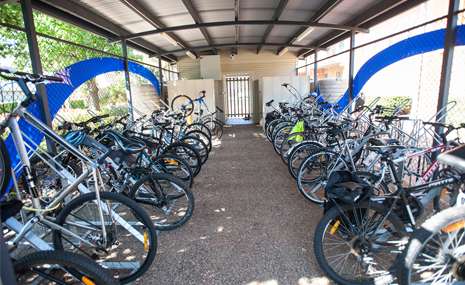
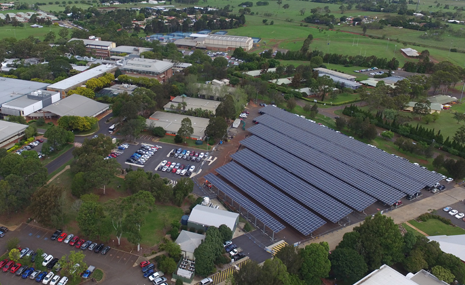
Creating Impact
W I N N E R
Trifecta success for innovative battery recycling project
UNSW Sustainability battery recycling program is an innovative and extremely successful community based recycling solution which diverts approximately one tonne of potentially toxic waste batteries away from landfill every year. As a significant portion of these batteries are directed into on-campus battery recycling research; this program is contributing not only to better waste management but to advances in battery recycling, with significant benefits well beyond the University. This project highlights the important role UNSW Sydney plays in building a sustainable community and validates our commitment to a global impact through world leading research, thought leadership and exemplary education.
For UNSW, a Green Gown Award is recognition of our University’s commitment to the practical action on sustainability, as well as community collaboration on environmental initiatives. UNSW Sustainability’s community-based recycling solution provides opportunities for UNSW students, staff and the community to work together on a local recycling solution. Staff, students and researchers have volunteered their time and energy in making this community-based battery recycling solution a wonderful success. This award from the Australasian Campuses Toward Sustainability is an important acknowledgement of the important role UNSW Sydney plays in building a sustainable community and will validate our commitment of a global impact through world-leading research, thought leadership and exemplary education.
Top 3 learnings
Sustainable Development Goal 3
Aim big but start small; perfect your systems, services and infrastructure as you expand.
Sustainable Development Goal 4
Communicate regularly with volunteers, celebrate achievements and be always ready to provide support.
Sustainable Development Goal 6
Think outside the box with innovation in using resources, and taking advantage of available systems and services.
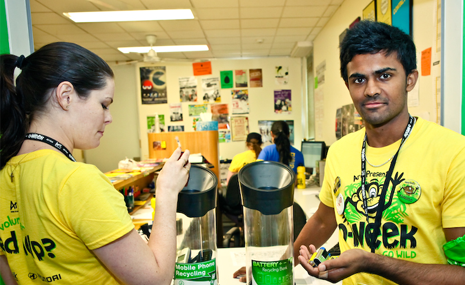
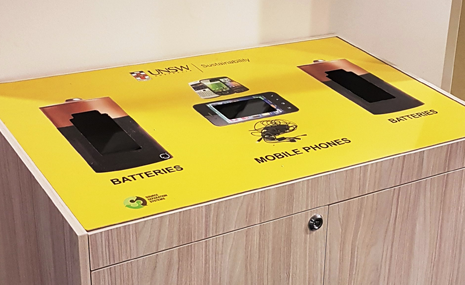
H I G H L Y C O M M E N D E D
USC Recycled Water – Creating Conservation Impacts
USC is the first University in Australia to supplement ‘make up’ water for its swimming pool with recycled onsite lake storage water. The treated lake water meets the Australian Standard for Potable Water Classification proving it to be an innovative solution to water conservation issues. The treated lake water is also used in the cooling towers as part of the campus air-conditioning system which is linked to a real-time monitoring/control system. These initiatives save $35,000 per year in mains water costs and supply in excess of 20,000 litres of recycled water per day; which is approximately 13% of the total daily water usage.
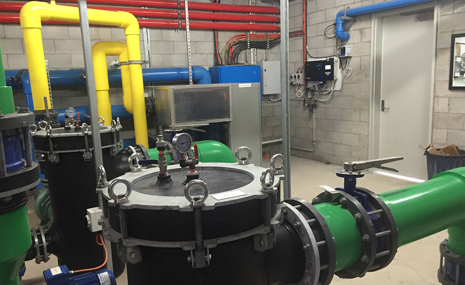
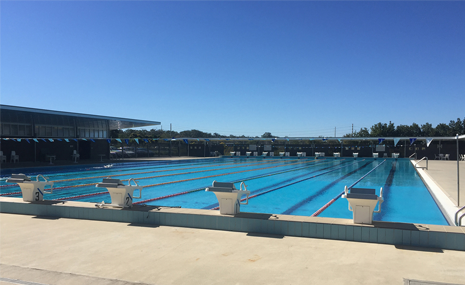
Facilities & Services
W I N N E R
Two Wheel Takeover – Creating the Bike Hub at RMIT
The ‘Bike Hub’ project at RMIT transformed a dark basement car park into a state of the art cycling facility. It offers parking for 400 bikes, change facilities, showers, lockers, drying cupboards, ironing boards and hair dryers. Electric bike charging, repair stations and a bike vending machine stocked with cycling essentials complete the space. The Bike Hub not only encourages students and staff to ride to the campus, but has created a blueprint for inclusive and engaging cycling provisions in Melbourne and beyond.
RMIT is proud to be the recipient of a Green Gown Award for our Bike Hub project. The award has confirmed that our sector shares our vision for a sustainable campus, where our staff and students are provided with high-quality facilities to make sustainable choices easy and enjoyable.
Top 3 learnings
Sustainable Development Goal 3
If you build it they will come – the better the facility the more people will ride and more often.
Sustainable Development Goal 11
Every project should have inclusion and accessibility as a central value.
Sustainable Development Goal 13
The little extras make the difference – so put the user at the heart of your design.
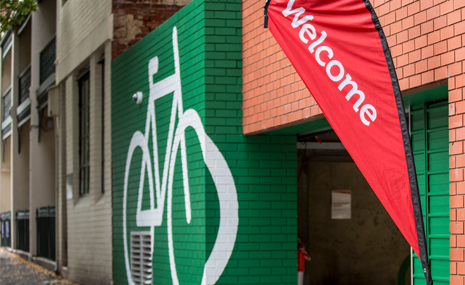
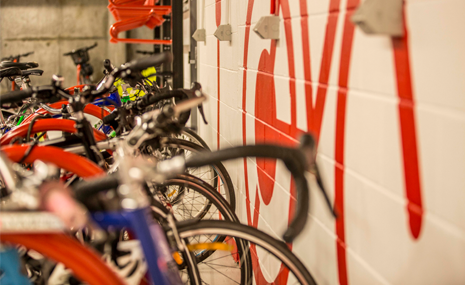
H I G H L Y C O M M E N D E D
Smart Minds = Smart Buildings – A ‘neural network’ approach for energy efficient buildings
Researchers and students from the School of Mechanical Engineering are taking their ‘neural network’ BMS theory to the campus with impressive results. The innovative approach to building optimization adapts to the uncertainties of weather changes, and plans for thermal interactions between HVAC zones of a building, thus maintaining thermal comfort, improving energy efficiency and reducing electricity costs. The application of this research has resulted in a sound business case for the technology and students have been able to test new knowledge in a real-world setting. The success of this project has resulted in the expansion to other buildings on campus.
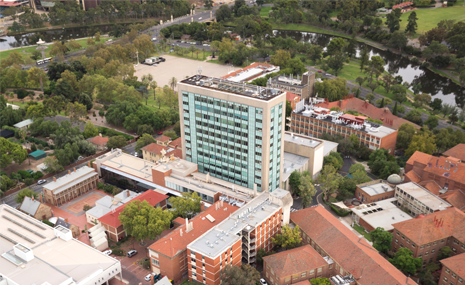
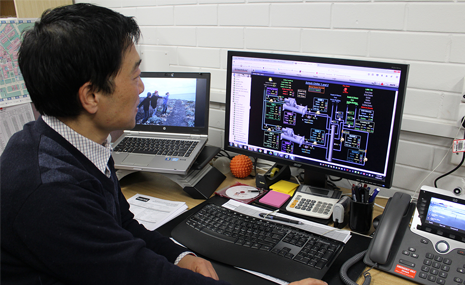
Learning, Teaching & Skills
W I N N E R
Vietnam – United Nations Sustainable Development Goals Study Tour
The United Nations Sustainable Development Goals (SDG) Study Tour (Vietnam) is an immersive educational program that provides students with first-hand knowledge of the SDGs in an emerging economy context. During the program, students experience the diversity of Vietnam, from rural home-stays to cutting-edge innovation spaces; from social enterprises to the United Nations Development Program. Students also undertake a multi-disciplinary project to improve sustainability outcomes for both Vietnam and Australia: from waste management to urban gardens, and bike-share systems to environmental education outreach programs. Since launching in mid-2016, over 60 students have joined this unique experiential learning journey and transformative experience.
Winning the Green Gown award will raise the importance of learning about sustainability and sustainable community development across all degree disciplines. With the UN Sustainable Development Goals program being a two-week study tour to Vietnam, the impact of immersive global mobility and experiential learning environments will also be recognised. Moving forward, the award and recognition will help to secure resourcing and support to scale the program to reach more students, and expand the inter-University collaboration.
Top 3 learnings
Sustainable Development Goal 4
The critical importance of having a local partner organisation, for the deep understanding of local context and culture.
Sustainable Development Goal 11
The two main barriers to students participating in the in-country program are funding and associated academic courses/credit.
Sustainable Development Goal 16
The inclusion of local University students to further the cross-cultural exchange and impact of the team Action Project.
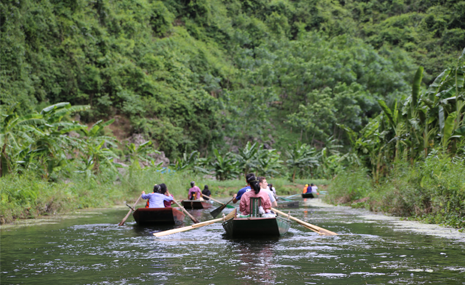
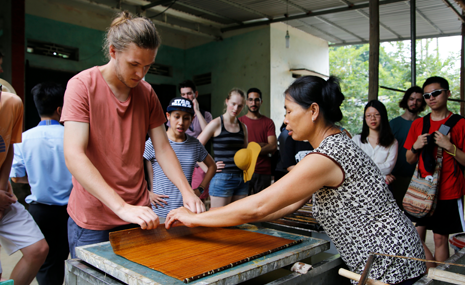
Student Engagement
W I N N E R
Adelaide Sustainability Association: Sustainability Super Group
The Adelaide Sustainability Association (ASA) provides dynamic professional development opportunities for students at the University of Adelaide. Developed by students, for students, the club with 900+ members is empowering undergraduates through programs, activities and events that increase global environmental awareness, improve skills and develop capabilities relevant to future careers in sustainability. Led by a passionate student committee and with the assistance of key staff mentors, the ASA is motivating the student body to be inspired, not overwhelmed, by the opportunities that climate change presents.
This Green Gown Award will celebrate the leadership of the Adelaide Sustainability Association executive committee, and inspire further positive action by Club members. This Award would help to promote the value of multi-disciplinary, goal-orientated Clubs like the ASA at other universities, and would encourage industry bodies to get involved in student-led activities on campus.
Top 3 learnings
Sustainable Development Goal 4
Uniting like-minded students across multiple disciplines will generate perspective, and variety in solutions to environmental and economic problems.
Sustainable Development Goal 8
Utilising influential staff members to champion a student club, can increase engagement with local industry and the wider university community.
Sustainable Development Goal 9
Students are optimistic about the future and confident that they can make a difference.
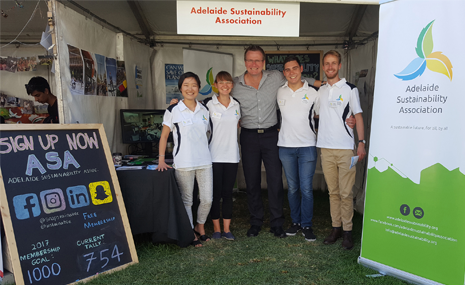
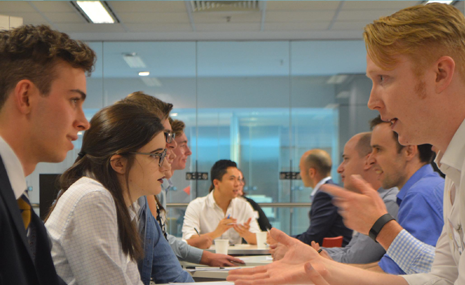
ACTS Award of Excellence – Staff
W I N N E R

Rachael Goddard
Rachael is the Environmental & Sustainability Manager at the University of Waikato, where she has driven sustainability initiatives, student and staff engagement, outreach and successfully managed environmental and sustainability projects for 6 years. Rachael conducts research, benchmarking, and reporting, she is a guest lecturer, project manager and develops engaging initiatives and programmes around sustainability, she makes films, writes children’s books and has created the Going Green and WASTED brands and set up the successful Eco Emporium, the first of its kind in NZ. Many of these initiatives go well beyond her job description. She has presented to over 9,000 people in 15 years, and was the Kudos Science Educator Award winner 2012. She has engaged positively and successfully with thousands of staff, students and externally in industry, the community, schools and councils. Rachael has also been successful in securing $100k over 5 years in funding for sustainability initiatives and collaborations on campus. She is a great networker, driven and strategic.
H I G H L Y C O M M E N D E D

Nick Swan
A bold and passionate operator, Nicks’ commitment to sustainable practices in reuse and recycling has taken Melbourne Universities’ internal reuse program and transformed it into an industry-leading service. He has successfully driven fundamental change in operational practice and ideology, through both idealistic and pragmatic approaches. He continually strives to implement new and innovative practices above and beyond normal job requirements. The efficacy and engagement of his work practices and principles, permeates into both his professional and personal spheres.
ACTS Award of Excellence – Student
W I N N E R
Sophie Lamond
Sophie has developed and championed a student-led co-designed vision for fair food policies in Australian universities. She has built extensive networks both within the University of Melbourne and universities across Australia creating a community of practice working on transforming campus food environments.
H I G H L Y C O M M E N D E D
Thomas Crawford
Tom is a gentleman of sustainability. Due to significant time spent in Africa travelling and teaching in a Nairobi slum, he is passionate about social and environmental justice and is considered, polite and passionate in his activism. Tom co-led the 2015 sit-in at the University of Tasmania over divestment, helping garner national attention to the issue. He has worked hard to support the University to effectively address organic waste. Tom is a past President of the UTAS Environment Collective and a key member of Source Community Wholefoods, the on-campus cooperative cafe and sustainability education centre. He has parlayed his efforts at university and Source to win a $5000 City of Hobart grant to establish a community composting hub to serve as a model for future organics waste management in southern Tasmania. He is now a paid student intern with the University of Tasmania sustainability team developing a proposal for an on-campus digester. Tom lives his values through his transport and living choices, is open to new ideas, is polite and reliable, respected by staff and admired by many students interested in sustainability.
Media
The 2017 Green Gown Awards Australasia was proudly sponsored by:
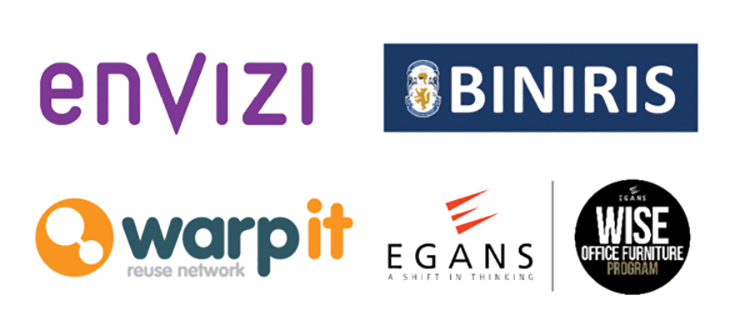




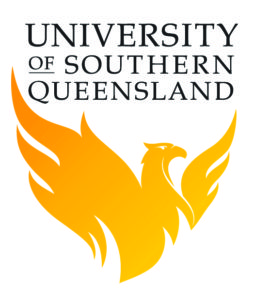
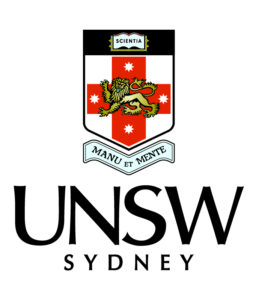



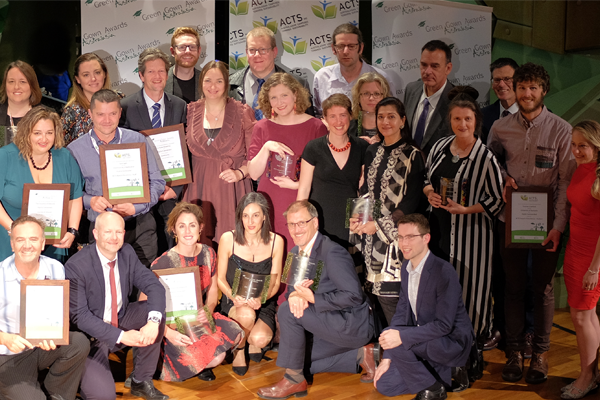
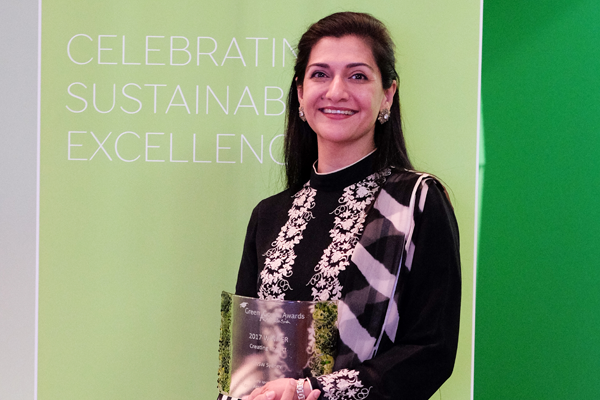
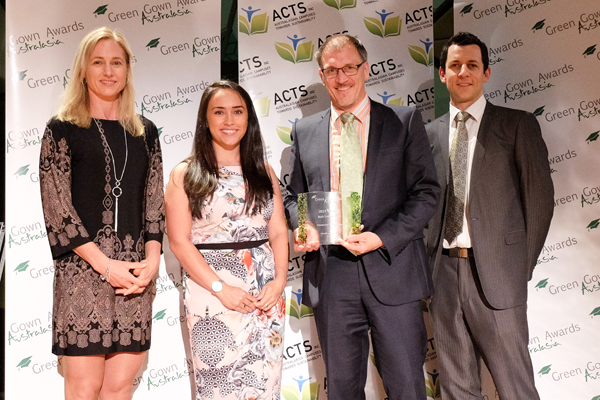
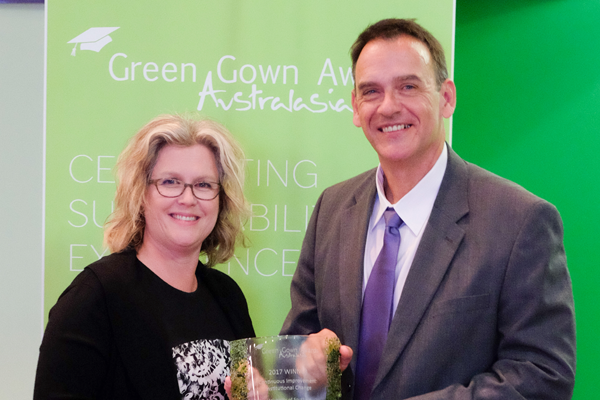
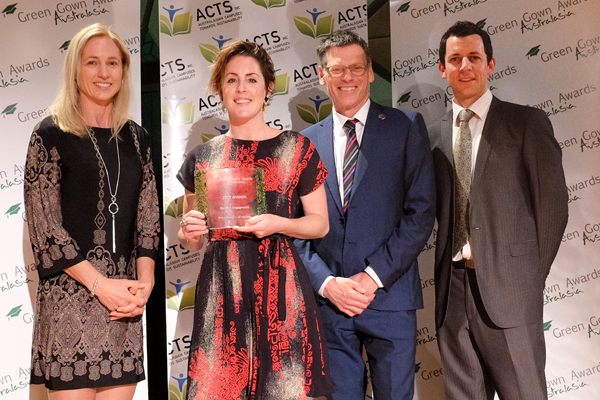
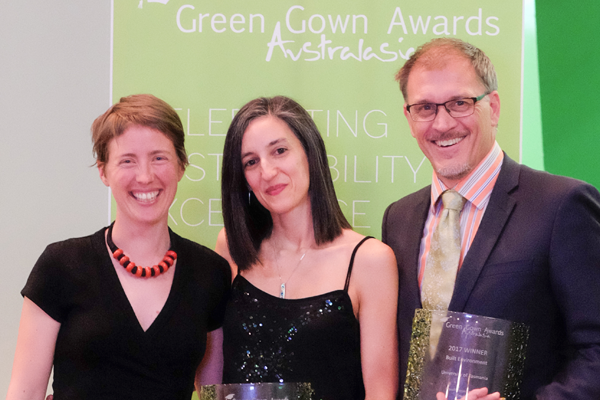
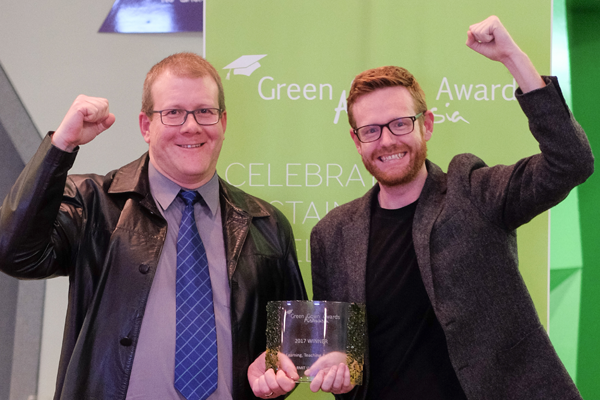
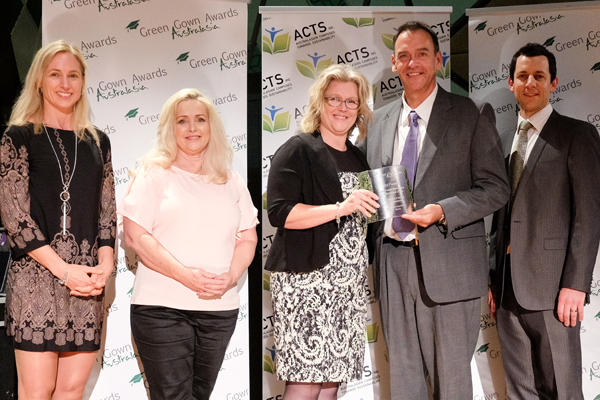
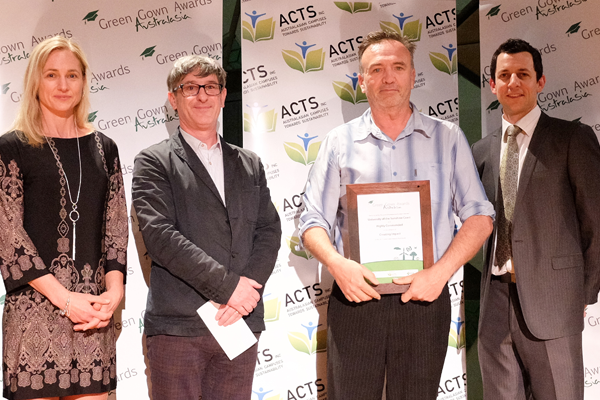
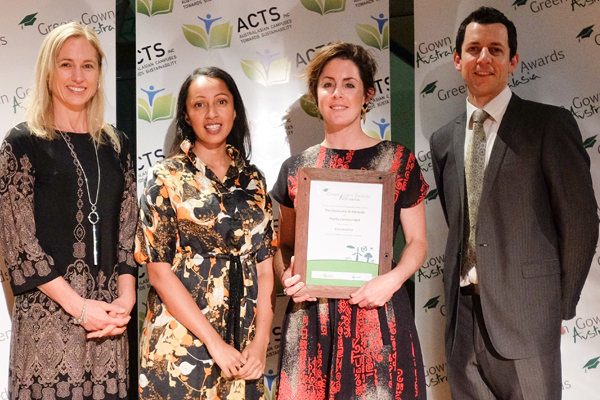
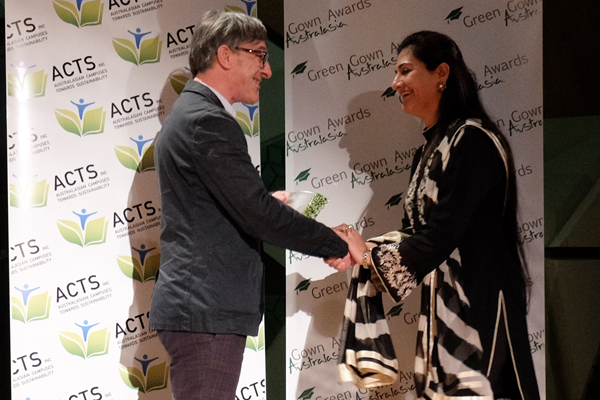
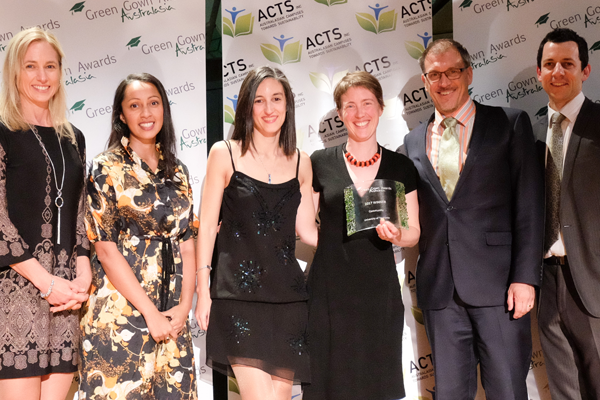
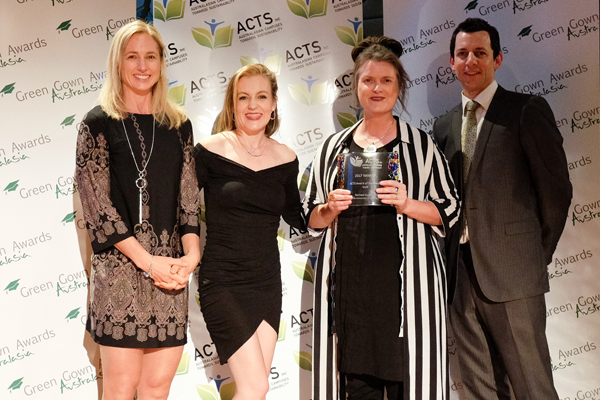
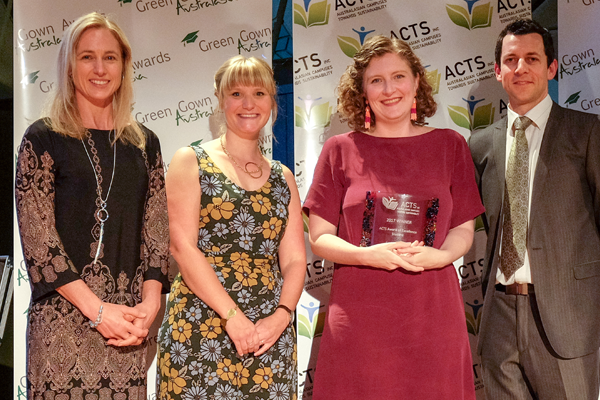
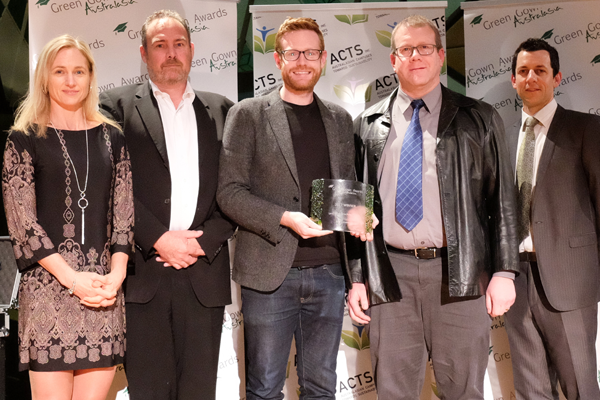
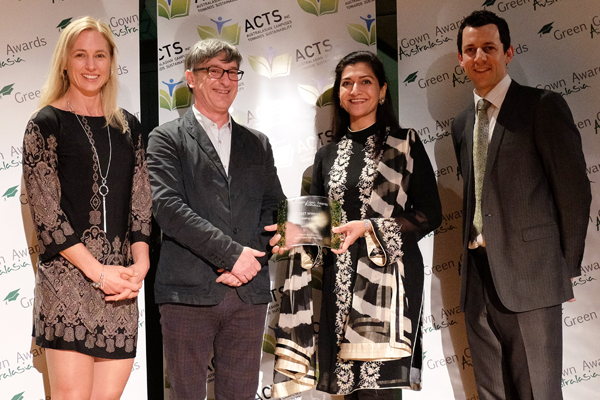
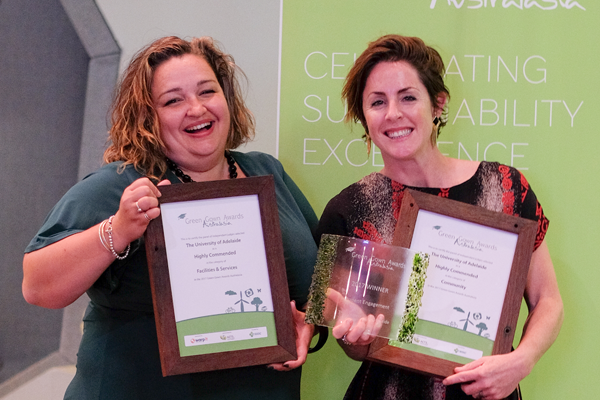
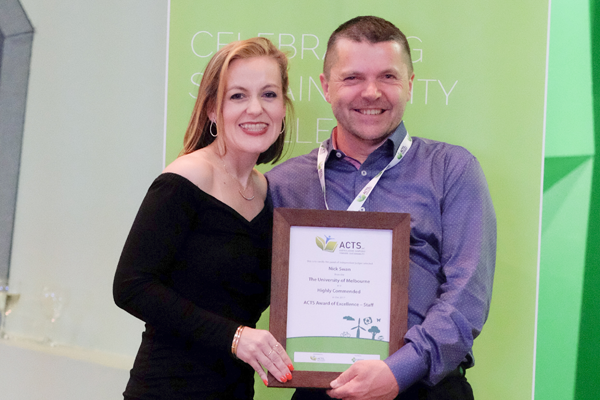
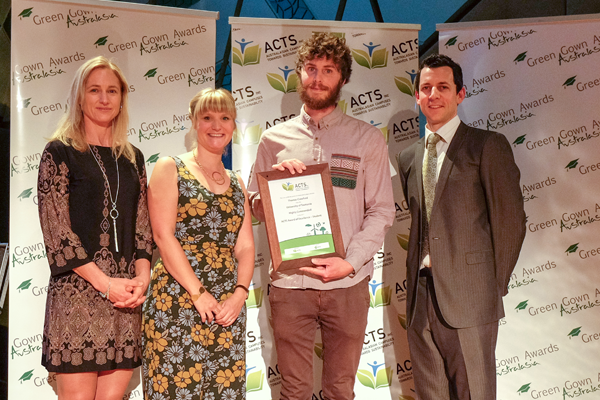
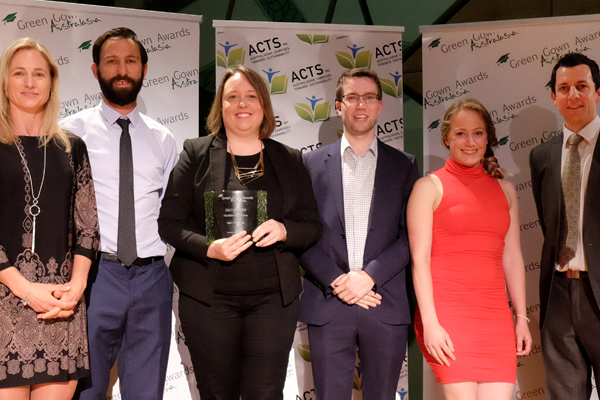
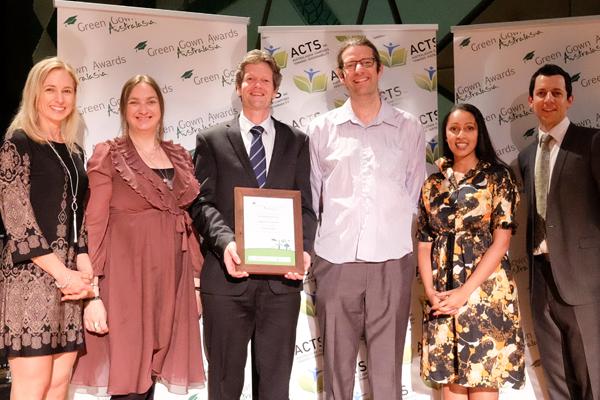

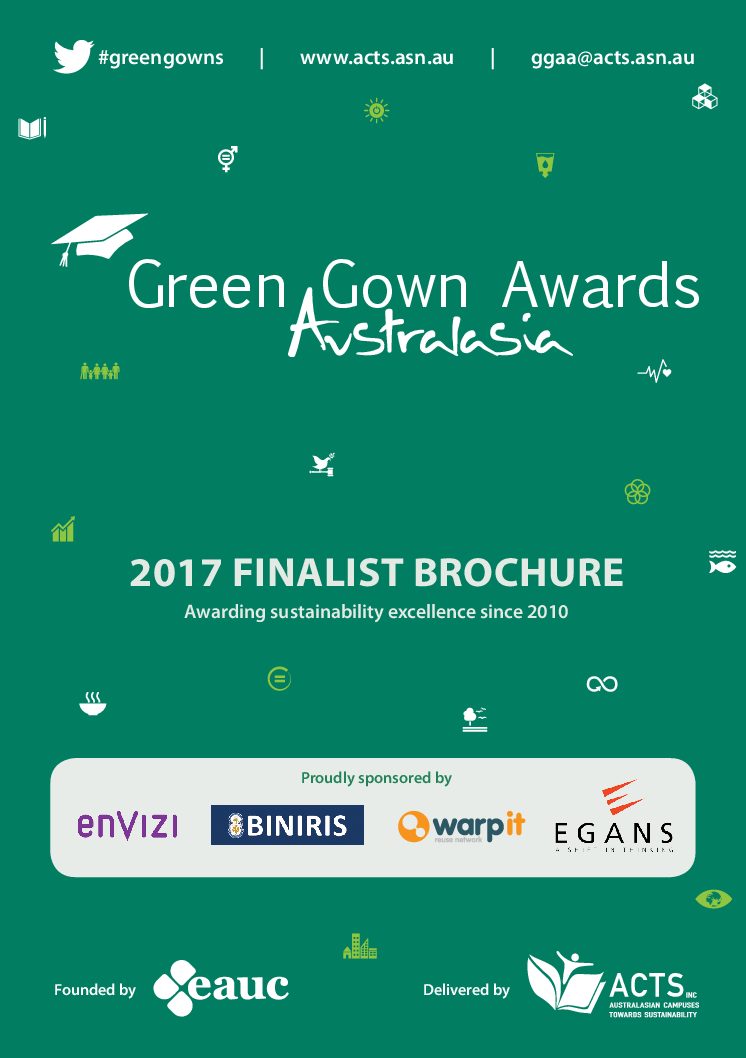
![GRAPHIC: GGAA Generic [Centered]](https://ggaa.acts.asn.au/wp-content/uploads/sites/4/2018/05/2016GGAA_Generic-promo-Centered.jpg)




